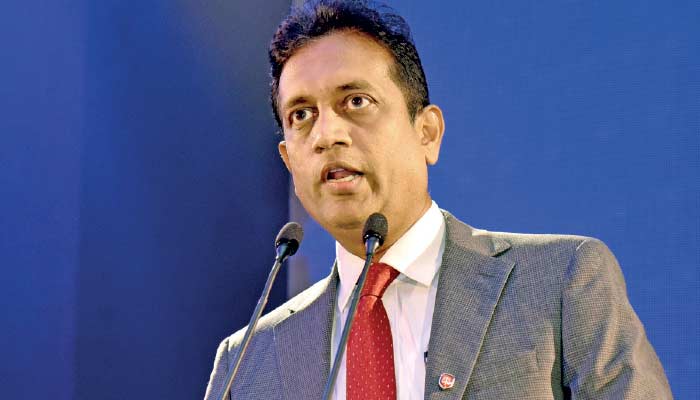Sunday Feb 22, 2026
Sunday Feb 22, 2026
Thursday, 9 October 2025 05:58 - - {{hitsCtrl.values.hits}}

CA Sri Lanka President Heshana Kuruppu – Pic by Ruwan Walpola
By Devan Daniel
CA Sri Lanka President Heshana Kuruppu addressing the institute’s 46th National Conference yesterday said Sri Lanka must not sacrifice economic momentum to avoid future Macro-Linked Bond (MLB) payments, arguing that the long-term benefits of sustained growth far exceed the added debt service costs.
He said Sri Lanka should not shy away from growth because of MLB terms. An International Monetary Fund (IMF) working paper estimates that from 2028 to 2038, Sri Lanka could pay between $ 150 million and $ 270 million a year, depending on GDP outcomes between 2025 and 2027, or about $ 2 billion over the decade.
“Should we aim for lower growth to avoid these payments? The answer is no. The economic benefits of sustained higher growth will outweigh the additional debt service costs. The price of standing still is always greater than the price of moving forward,” he said.
Kuruppu said the Public Finance Management Act, Public Debt Management Act, and Central Bank Act have improved transparency, but they will only deliver if backed by capable professionals who apply international standards and sound fiscal practices.
“Implementing accounting standards, effective procurement and investment practices, and prudent debt strategies all depend on strong financial expertise in the public sector,” he said.
He pointed to Cyprus, where embedding professional accountants in ministries lifted the share of qualified finance staff from 7% to 33% by 2022. Sri Lanka is far behind, with only 38 professionally qualified accountants among 1,600 public finance officers managing an estimated Rs. 7 billion in expenditure.
CA Sri Lanka has offered 25 full scholarships for an MBA in Public Finance Management and is working with Treasury Secretary Dr. Harshana Suriyapperuma to institutionalise the Chartered Public Finance Accountant qualification, developed seven years ago but not yet implemented.
He said market credibility is essential to attract capital and that ethics are central to the profession’s role. “The numbers we certify are not mere figures on paper. They form the foundation upon which investors, both local and global, build confidence in our economy. When we sign an audit report, we are underwriting Sri Lanka’s credibility,” he said.